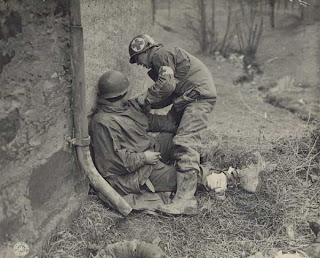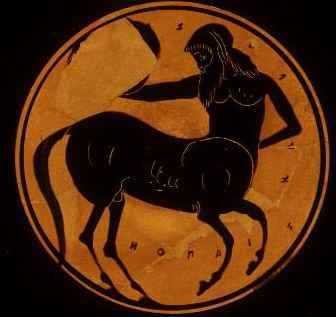
Wednesday, August 29, 2007
Kasparov continues to push pawns politically

Saturday, August 25, 2007
The Dr. is out and the Shaman is in.

Looks like I get a couple days of "vacation" due to the doctors long weekend. He don't work, I don't work. So I can finish this TAG post that BDK has been subtly nagging about. Did I say subtly because blatantly is a little more apt.
Here you go dear readers. On the QT and strictly Hush-Hush....
1. How long have you been playing chess? Have you played it consistently since you started, or were there lulls in your play? How did these lulls affect your performance?
Ive been playing somewhat regularly since late circa 1999 if my memory serves me right. So thats about eight years. The age of a small child. Thats creepy. I did learn it early as a child from my father and brother but didnt take it at all seriously until '99.
Consistently? Yes and No. Ive been involved in it with one aspect or another since then. But playing OTB and online gets boring, as does studying, so Ive wobbled back and forth between the two. This blog ties in too. As a way to keep near the game during the times when Im not interested in playing but dont want to lose the edge.
Lulls you ask? Of course thier are lulls. Anyone who doesnt have these glorious pauses is some sort of machine. The lulling effect? Its added a lot of diversity to my game. Forcing artistic play from a swiss cheese memory and filling in the blanks on vaguely remembered gambits. Yes, its probably the biggest crutch for all of us. If we studied it eight hours a day seven days a week we would all be grandios masters. But hey, we are human and its a game of pleasure not of pain that should be treated so.
2. Aside from playing games, what is your primary mode of training?
Primary? studying from books. Secondary? Talking out games and ideas with my bro. Playing out masters games and puzzles. Watching annotated games. Doing endgame and knight drills. Blogging about the game and letting new ideas flow.
3. What is the single most helpful method of improvement that you have ever used?
This one is easy. Talking out games while playing OTB. Discussing ideas and tactics, why I made this move and you this move, all while playing, digging deeper and deeper into the game. My biggest strides have all arrived from this sort of analysis.
4. What is your favorite opening to play as white? As black against e4? As black against d4?
I don't really have favorites anymore. Whatever is best for the mood and the opposing player really. But if I had to choose it would be the Danish Gambit, French Defence (Go get'em Sarkozy) and the reverse Botvinnik Formation.
5. Who is your favorite chess player and why?
Mikhail Botvinnik. When I first started playing I used his formation and the French Defence as a basis for my game. Later I did a little reading, learning that he also preferred the French and that our styles of play were not all that different despite our differences in mastery of the game. Today I focus on endgame studies much as he did and its paying out in spades.
6. What is your favorite chess book?
I like Pawn Power. Its dry and it sucks to read but every time I pick it up I learn something new and useful. That one will last a lifetime.
7. What book would you recommend for a friend who knows only the rules of chess?
From the book review post:
http://knightskewer.blogspot.com/2006/07/books-i-have-and-recommend.html
The Complete Book of Chess Strategy by Jeremy Silman. This was my first book about chess. It covers numerous aspects of chess from opening, middlegame, endgame and practical matters. It is very well written unlike most chess books and is very easy to understand. It is a perfect book for beginners and like all chess books look for it used and you will probably find it for two dollars.8. Do you play in in-person tournaments? What is your favorite tournament experience?
I played in one. I took fifth out of twenty some at a UW Milwaukee tournament. I shouldve taken second but I didn't. It was four hours long which is frankly too long for me to play chess. I stopped caring into the third hour and blew what should have been a win. Later I redeemed myself by trouncing the second place winner repeatedly at the chess club. I learned a lot at that tournament though. About the diversity of people that play and how the tournies are run. This year I will gun them down with relative ease.
9. Please give us a link to what you consider your best two blog posts (on your own blog).
http://knightskewer.blogspot.com/2006/07/knight-skewer-manifesto.htmlhttp://knightskewer.blogspot.com/2007/06/game-unravels.html
10. What proportion of total chess time should be spent studying openings for someone at your level?
Well since I don't spend much time on them these days... Ive memorized six or seven good openings/defences and can play another five by ear. I'm not a master of them but can play three openings through to mate if given the opportunity. So to answer the question: at my level someone should study openings as much as they desire, without getting bored and without spending more than 25% of your allotted study time.
Has Let me tell you about my best friend been tagged yet? Well he has now.
Monday, August 13, 2007
Sunday, August 12, 2007
Blackcoat Disguise

My brother "ReverendDominus" emailed this game to me a few days ago. Hes not actually a Reverend, well hes an internet Reverend with veiwpoints quite contrary to Christianity. This does not take away from his chess game.
[White "ReverendDominus"]
[Black "nytrade4u69"]
[Result "1-0"]
1.e4 e6
2.d4 d5
3.e5 c5
4.c3 a6
5.Bc1f4 b5
6.Bf4g3 h6
7.f4 Ng8e7
8.Ng1f3 c4
9.Bf1e2 Ne7f5
10.Bg3f2 g5
11.fxg5 hxg5
12.g4 Nf5h6
13.Nb1d2 Nh6xg4
14.Bf2g3 Ng4e3
15.Qd1c1 Ne3g2+
16.Ke1f2 Ng2f4
17.Bg3xf4 gxf4
18.Rh1g1 Nb8d7
19.Nd2f1 Bf8h6
20.Kf2e1 f5
21.Qc1d2 Nd7f8
22.Ke1d1 Bc8d7
23.b4 a5
24.a3 axb4
25.cxb4 Ke8f7
26.Nf3e1 f3
27.Be2xf3 Bh6xd2
28.Bf3h5+ Kf7e7
29.Rg1g7++ 1-0
My Brilliant Brain
Friday, August 03, 2007
Wednesday, August 01, 2007

The difference between me and George Washington is that if somebody offered me the title of king, I would accept it.
Both games carry the same theme. A relatively evenly matched opening. The games start out closed with no wild exchanges or sacrifices. I start to falter in the middle game and then return in the endgame to snatch victory from the claws of defeat.
1.c4 e6
2.Nb1c3 Bf8c5
3.g3 Ng8e7
4.Bf1g2 O-O
5.e4 d6
6.Ng1e2 Bc5b4
7.O-O Bc8d7
8.d3 Nb8c6
9.a3 Bb4xc3
10.bxc3 Nc6e5
11.f4 Ne5g4
12.h3 Ng4f6
13.Bc1e3 c6
14.c5 d5
15.e5 Nf6e8
16.d4 Ne7f5
17.Qd1d3 Nf5xe3
18.Qd3xe3 g6
19.Kg1f2 Ne8g7
20.g4 b6
21.Rf1h1 f5
22.g5 bxc5
23.dxc5 Ra8b8
24.h4 Qd8a5
25.Ra1b1 Qa5xa3
26.Rb1a1 Qa3b3
27.Rh1b1 Qb3c4
28.Bg2f1 Rb8xb1
29.Ra1xb1 Qc4a2
30.Rb1b7 Rf8d8
31.Kf2f3 Qa2a6
32.Rb7b4 Qa6a1
33.Ne2g3 Qa1d1+
34.Qe3e2 Qd1a1
35.Qe2b2 Qa1e1
36.Rb4b7 Qe1d1+
37.Bf1e2 Qd1a4
38.Rb7b4 Qa4a5
39.Kf3e3 Qa5xc5+
40.Rb4d4 a5
41.h5 gxh5
42.Be2xh5 a4
43.Bh5d1 a3
44.Qb2a2 Qc5xc3+
45.Rd4d3 Qc3e1+
46.Ng3e2 Rd8a8
47.Bd1c2 c5
48.Rd3d1 Qe1a5
49.Rd1h1 Bd7c6
50.Rh1h6 d4+
51.Ke3f2 Bc6d5
52.Qa2a1 Ra8b8
53.g6 hxg6
54.Rh6xg6 Rb8b2
55.Qa1g1 Rb2b7
56.Bc2b1 Qa5d2
57.Rg6g3 Kg8f7
58.Rg3xg7+ Kf7e8
59.Qg1g6+ Ke8d8
60.Qg6f6+ Kd8c8
61.Qf6f8
1.e4 Ng8f6
2.Nb1c3 e5
3.Ng1f3 Bf8b4
4.Bf1c4 O-O
5.O-O d5
6.Nc3xd5 Nf6xd5
7.Bc4xd5 Bc8g4
8.a3 Bg4xf3
9.Qd1xf3 Bb4xd2
10.Bc1xd2 Nb8a6
11.Qf3g3 Ra8c8
12.Bd2h6 Qd8f6
13.Bh6g5 Qf6g6
14.f4 exf4
15.Rf1xf4 Kg8h8
16.Bd5xb7 Qg6b6+
17.Kg1h1 Qb6xb7
18.Ra1f1 Qb7b5
19.e5 Qb5xe5
20.Rf4f5 Qe5xb2
21.Bg5e7 Rf8e8
22.Rf5xf7 Re8g8
23.Rf7f8 Rc8xf8
24.Be7xf8 h6
25.h3 Qb2b5
26.Rf1f4 Qb5b1+
27.Kh1h2 Qb1xc2
28.Rf4g4 Qc2h7
29.Bf8b4 Na6xb4
30.axb4 g5
31.Rg4c4 Qh7e7
32.Rc4xc7 Qe7xb4
33.Qg3e5+ *

